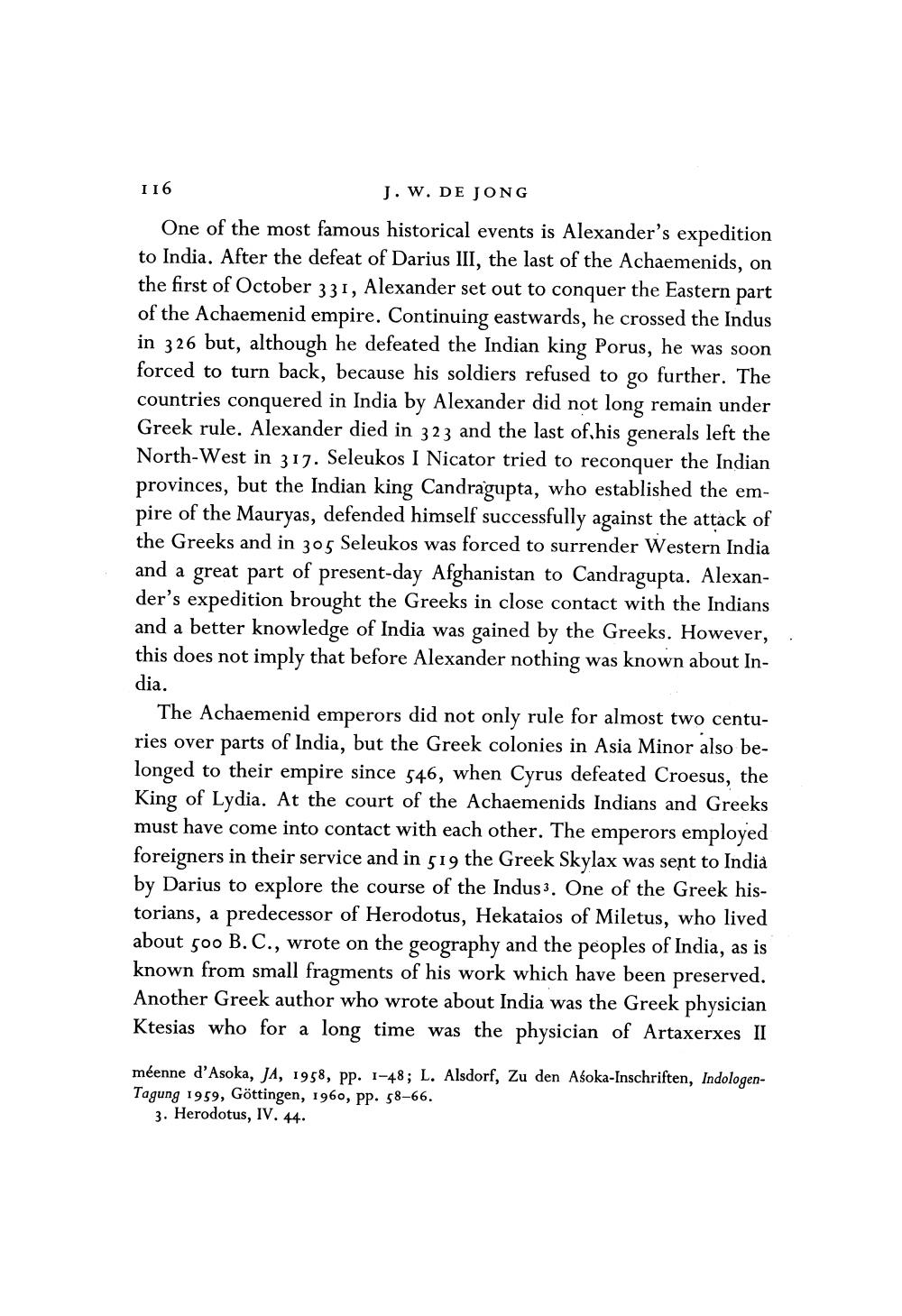Book Title: Discovery Of India By Greeks Author(s): J W De Jong Publisher: J W De Jong View full book textPage 2
________________ 116 J. W. DE JONG One of the most famous historical events is Alexander's expedition to India. After the defeat of Darius III, the last of the Achaemenids, on the first of October 331, Alexander set out to conquer the Eastern part of the Achaemenid empire. Continuing eastwards, he crossed the Indus in 326 but, although he defeated the Indian king Porus, he was soon forced to turn back, because his soldiers refused to go further. The countries conquered in India by Alexander did not long remain under Greek rule. Alexander died in 323 and the last of his generals left the North-West in 317. Seleukos I Nicator tried to reconquer the Indian provinces, but the Indian king Candragupta, who established the empire of the Mauryas, defended himself successfully against the attack of the Greeks and in 305 Seleukos was forced to surrender Western India and a great part of present-day Afghanistan to Candragupta. Alexander's expedition brought the Greeks in close contact with the Indians and a better knowledge of India was gained by the Greeks. However, this does not imply that before Alexander nothing was known about India. The Achaemenid emperors did not only rule for almost two centuries over parts of India, but the Greek colonies in Asia Minor also belonged to their empire since 546, when Cyrus defeated Croesus, the King of Lydia. At the court of the Achaemenids Indians and Greeks must have come into contact with each other. The emperors employed foreigners in their service and in 519 the Greek Skylax was sent to India by Darius to explore the course of the Indus 3. One of the Greek historians, a predecessor of Herodotus, Hekataios of Miletus, who lived about 500 B.C., wrote on the geography and the peoples of India, as is known from small fragments of his work which have been preserved. Another Greek author who wrote about India was the Greek physician Ktesias who for a long time was the physician of Artaxerxes II méenne d'Asoka, JA, 1958, pp. 1-48; L. Alsdorf, Zu den Aśoka-Inschriften, IndologenTagung 1959, Göttingen, 1960, pp. 58-66. 3. Herodotus, IV. 44.Page Navigation
1 2 3 4 5 6 7 8 9 10 11 12 13 14 15 16 17 18 19 20 21 22 ... 28
